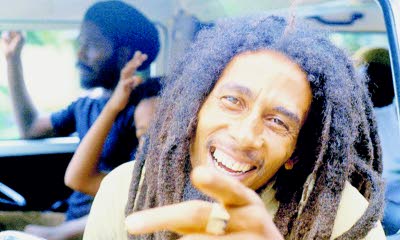(Jamaica Observer) Nineteen Hundred and seventy six was a tumultuous period in Jamaica. The country sat on a proverbial powder keg as Prime Minister Michael Manley’s mantra of democratic socialism inspired a generation and alienated others. Bob Marley was putting reggae on the map with his unique sound, while in sports, Donald Quarrie and Michael Holding excelled in track and cricket respectively. Cindy Breakspeare won the Miss World pageant. The Jamaica Observer looks back at one of the most turbulent periods in the country’s history.
ON the strength of two critically acclaimed albums, Bob Marley was on the verge of international stardom in late 1975 when he began recording his second solo studio album.
He gathered his Wailers band for sessions at Harry J and Joe Gibbs studios in Kingston and that resulted in
Rastaman Vibration. Released in April 1976, this year marks the 40th anniversary of that landmark set.
In an interview in June that year, Marley, who died in 1981 at age 36, spoke about the album. He said it transcended music.
“It’s not music right now, we’re dealing with a message. Right now the music not important, we’re dealing with a message.
Rastaman Vibration is more like a dub kinda album and it’s come without tampering y’know. Like
War or
Rat Race, the music don’t take you away, it’s more to listen to.”
War (an interpretation of an Haile Selassie speech) and Rat Race were two of the songs from
Rastaman Vibration, which, like Marley’s previous albums,
Natty Dread and
Live!, was distributed by Island Records.
Those albums helped solidify Marley’s international profile. But according to guitarist Earl ‘Chinna’ Smith, who played on
Rastaman Vibration, Marley wanted to get back in touch with his roots.
“When yuh listen the live album is like the rhythm dem jus’ a run, like a rock band. So, people sey him gone inna crossover thing,” Smith told the Sunday Observer.
With Rastaman Vibration, Smith reasoned, Marley wanted music “yuh coulda play a
Jah Love (sound system). Song like
Who The Cap Fit, Rat Race an
’ Night Shift coulda play inna dance ‘cause dem a One Drop.”
Smith was 20 years old in 1975 and a hot session musician. He, along with keyboardist Tyrone Downie, were newcomers to the sessions. Established members of the Wailers band were harmony singers, the I-Three, and the drum-and-bass team of brothers Carlton and Aston ‘Familyman’ Barrett, who played on
Natty Dread and
Live!
 Though he had worked with the rising Dennis Brown and on Burning Spear’s sensational
Though he had worked with the rising Dennis Brown and on Burning Spear’s sensational
Marcus Garvey the previous year, Smith said the Marley set-up was an entirely different affair.
“Yuh a move with some man who sey dem waan rule the world, some simple likkle Rastaman wey smoke herb, read dem Bible an’ eat right,” he recalled. “An’ is one man govern the thing…Bob Marley.”
Anthony ‘Sangie’ Davis, a friend of Marley and member of the Twelve Tribes of Israel, hung out at the Harry J complex during the sessions. He recalled Marley’s mood throughout.
“Him was good, yuh know, an’ it show in the song dem…
Rastaman Vibration, Rat Race, War. Rastaman Vibration is really a spiritual album,” said Davis.
A spiritual album that resonated with fans. It is Marley’s only set to make Billboard Magazine’s 200 Album Chart, peaking at number eight. The stomping Roots, Rock, Reggae went as far as 51 on the publication’s Top 100 Singles Chart.
Marley and the Wailers went on a three-month tour to promote
Rastaman Vibration, starting in May at the Diplomat Club in South Florida.
For Smith, the most memorable show was at Ninian Park in Cardiff, Wales on June 19.
“It rain like crazy an’ di man (Marley) jus’ stan’ up and perform. Him neva get shock…mad thing!”
The tour and album made Bob Marley a bona fide star. He rubbed shoulders with Stevie Wonder and George Harrison of The Beatles; major magazines like
Rolling Stone and
Time did feature stories on him.
Marley returned to a Jamaica under a state of emergency, called by the government to quell political and gang warfare. It seemed inevitable he would be caught up in the hostilities.
In December, it was announced that Marley would headline Smile Jamaica, a peace concert at National Heroes Park in Kingston.
On December 3, two days before the event, he was shot in the chest and left arm by gunmen while rehearsing at his home in St Andrew. His wife, Rita, manager Don Taylor and friend Lewis Griffiths, were also shot and injured.
Marley still performed at Smile Jamaica, but concerned about his safety he left for the Bahamas and Britain shortly after. His next studio album would be an epic that ensured him pop music immortality.
